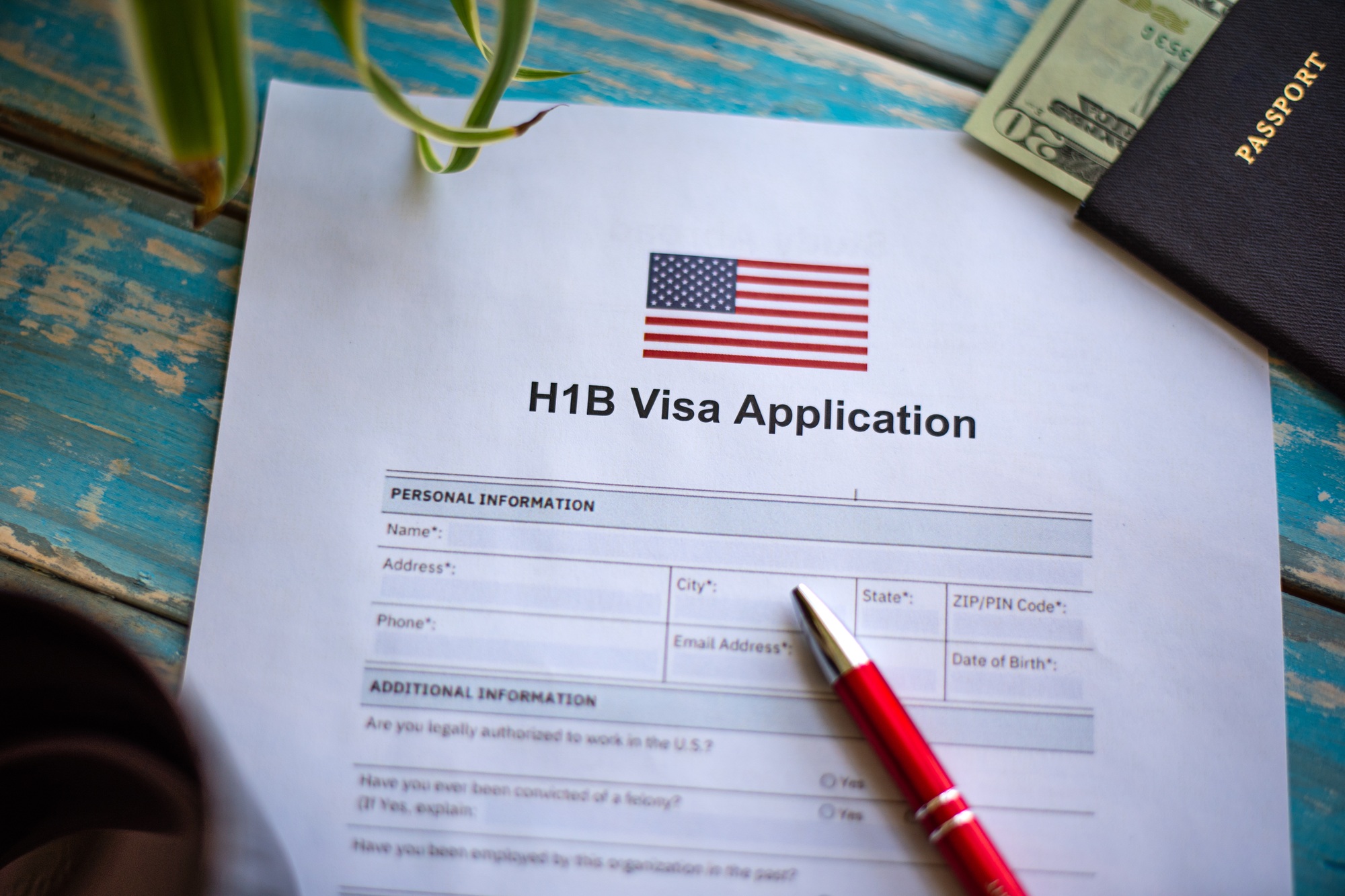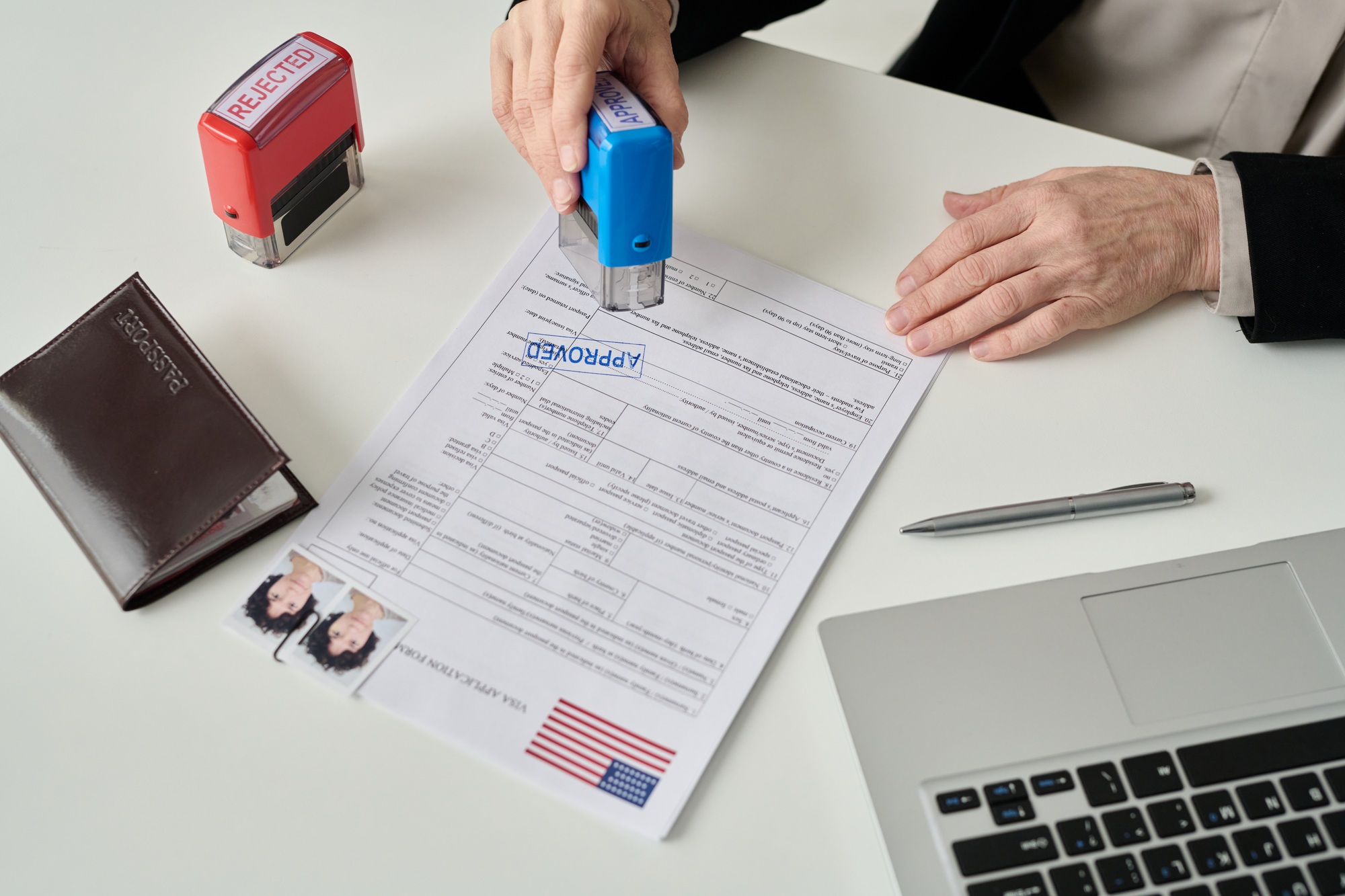Key Takeaways

- Definition of H-1B Visa: The H-1B visa is a non-immigrant visa enabling U.S. companies to employ foreign workers in specialty occupations requiring specialized knowledge or expertise.
- Eligibility Requirements: Employers must provide a job offer, demonstrate that the role qualifies as a specialty occupation, and ensure the foreign worker meets educational and professional qualifications.
- Application Process: The process involves filing a Labor Condition Application (LCA) with the Department of Labor and submitting Form I-129 along with required documentation to USCIS.
- Benefits for Small Businesses: Utilizing H-1B visas allows access to specialized talent, enhances competitiveness, fosters innovation, and can lead to increased employee retention.
- Common Challenges: Businesses face annual visa caps, which limit the number of available H-1B visas, and must navigate the visa renewal process to retain employees beyond the initial three-year period.
- Strategic Importance: Understanding the intricacies of the H-1B visa can significantly improve staffing strategies, promoting growth and adaptability in a competitive market.
Navigating the world of work visas can be overwhelming, especially when it comes to the H-1B visa. This non-immigrant visa allows U.S. companies to employ foreign workers in specialty occupations, making it a crucial pathway for skilled professionals seeking opportunities in the United States. Whether you’re a job seeker or an employer, understanding the H-1B visa’s significance is key to unlocking potential career advancements.
The H-1B visa not only benefits employers looking for expertise but also offers foreign workers a chance to gain invaluable experience in one of the world’s largest economies. In this article, you’ll discover what the H-1B visa entails, its application process, and the advantages it brings to both parties involved. Get ready to dive into the essentials of this vital visa category and learn how it can shape your professional journey.
What Is An H1B Visa?

The H-1B visa is a non-immigrant visa designed for U.S. companies to employ foreign workers in specialty occupations. This visa is crucial for small businesses that seek to hire employees with specific skills not readily available in the American labor market.
The visa is limited to occupations requiring theoretical or technical expertise in specialized fields, such as information technology, engineering, medicine, and finance. Employers must demonstrate that the position qualifies as a specialty occupation, providing evidence of job duties, required qualifications, and compensation.
The application process involves submitting a Labor Condition Application (LCA) to the Department of Labor. This ensures that hiring foreign workers does not negatively impact U.S. workers’ wages and working conditions. After obtaining the LCA, employers file a petition with U.S. Citizenship and Immigration Services (USCIS) for the H-1B visa.
For small businesses, utilizing the H-1B visa can foster diverse talent, enhancing staffing capabilities and meeting project demands. This flexibility allows small business owners and HR employees to leverage a global talent pool, improving overall competitiveness in the market.
Eligibility Requirements

The H-1B visa has specific eligibility criteria that you must meet as a small business owner or HR professional. Understanding these requirements ensures a smoother application process for hiring foreign employees.
Employer Sponsorship
You must provide a job offer to the foreign worker and sponsor their H-1B visa application. Your business must file the necessary petitions with U.S. Citizenship and Immigration Services (USCIS). This sponsorship establishes the employer-employee relationship required to proceed with the visa process.
Job Qualifications
The position you offer must qualify as a “specialty occupation.” This term generally includes jobs that require specialized knowledge and typically demand at least a bachelor’s degree in a relevant field. When you define the role, ensure it aligns with industry standards for specialized positions.
Educational Background
The foreign worker’s education must meet the required qualifications for the specialty occupation. Typically, they should possess a bachelor’s degree or equivalent in a specific area relevant to the job. As part of the application, you may need to provide documentation proving that their educational background aligns with the job requirements.
Application Process

The application process for an H-1B visa is straightforward but requires attention to detail. Understanding the steps involved helps small business owners and HR employees navigate hiring foreign workers efficiently.
Steps to Apply
- Obtain a Labor Condition Application (LCA): You must file an LCA with the Department of Labor. This ensures that hiring a foreign employee will not adversely impact U.S. workers’ wages and working conditions.
- Collect necessary documentation:
- Job description detailing duties and responsibilities.
- Proof of employer’s ability to pay the prevailing wage.
- Details showcasing the position as a “specialty occupation.”
- File Form I-129: Submit the petition for an H-1B visa to U.S. Citizenship and Immigration Services (USCIS), including the approved LCA and supporting documentation.
- Pay applicable fees: Ensure payment of all necessary fees for the I-129 petition and compliance with USCIS regulations.
- Await USCIS decision: USCIS reviews your petition, granting the H-1B visa or requesting additional information.
Required Documentation
When applying for an H-1B visa, specific documentation solidifies your case. Below is a list of essential documents:
- Labor Condition Application: Approved LCA demonstrating wage compliance and job conditions.
- Job Offer Letter: A formal offer detailing the position, responsibilities, salary, and employment terms.
- Qualifications Evidence: Degrees, transcripts, and professional licenses that verify the foreign worker’s eligibility for the position.
- Employer’s Credentials: Company information, financial statements, and proof of business operations.
Focus on collecting precise documentation as it speeds up the application process and strengthens your case when hiring specialized employees for your small business.
Benefits Of An H1B Visa

An H-1B visa offers numerous advantages for small business owners and HR professionals looking to enhance their staffing capabilities. Here are the key benefits:
- Access to Specialized Talent: You can hire skilled employees with specific expertise that may not be readily available in the domestic labor market. This access boosts your team’s capabilities and fosters innovation.
- Enhanced Competitive Edge: By employing foreign workers, your small business gains diverse perspectives and unique skill sets, allowing it to remain competitive in rapidly evolving industries.
- Streamlined Hiring Process: The H-1B visa aligns well with your staffing needs. By following the established application process, you can efficiently onboard qualified individuals in specialty occupations.
- Dual Intent Advantage: Employees on H-1B visas can pursue permanent residency while maintaining their visa status. This flexibility encourages talented individuals to commit long-term to your organization.
- Increased Employee Retention: Foreign workers often bring dedication and high levels of professionalism. Their eagerness to contribute to your business can lead to enhanced loyalty and reduced turnover.
- Support for Future Growth: Hiring foreign employees helps set a foundation for your company’s expansion. As your business grows, so does the need for diverse skill sets that an H-1B visa can provide.
Understanding these benefits equips you to navigate the complexities of hiring foreign workers and enhances your small business’s ability to thrive in a competitive market.
Common Challenges

Understanding the common challenges associated with the H-1B visa is vital for small business owners and HR employees. Addressing these issues can help in effectively managing staffing needs.
Visa Cap Limitations
The H-1B visa program has an annual cap of 65,000 visas, with an additional 20,000 visas allocated for applicants possessing advanced degrees from U.S. institutions. This limitation can restrict your ability to hire specialized employees, as demand often exceeds the available visas. Planning ahead for visa applications is crucial to ensure your small business can secure the talent it needs.
Renewal Process
The initial duration of an H-1B visa is up to three years, extendable in increments of up to three years, with a total maximum of six years. Navigating this renewal process involves timely filing of necessary documents, such as Form I-129, along with updated employer information and proof of continued need for the employee’s services. Staying organized and proactively managing the renewal timeline helps your small business maintain a stable workforce.
Conclusion

The H-1B visa plays a vital role in connecting skilled foreign workers with U.S. employers seeking specialized talent. By understanding the application process and eligibility requirements you can navigate the complexities of hiring international professionals effectively.
This visa not only enhances your workforce but also boosts your business’s competitiveness in a rapidly evolving market. With careful planning and attention to detail you can leverage the H-1B visa to foster growth and innovation within your organization. Embracing this opportunity allows you to tap into a diverse talent pool while contributing to a more dynamic work environment.
Frequently Asked Questions
What is the H-1B visa?
The H-1B visa is a non-immigrant visa that allows U.S. companies to hire foreign workers in specialty occupations requiring theoretical or technical expertise. It’s essential for skilled professionals seeking opportunities in the U.S.
Who can apply for an H-1B visa?
Employers seeking to hire foreign workers in specialty occupations can apply for an H-1B visa. The position must require a bachelor’s degree or higher in a relevant field, and the employer must sponsor the application.
What is a specialty occupation?
A specialty occupation is one that requires specialized knowledge and at least a bachelor’s degree in a specific field. Roles in information technology, engineering, medicine, and finance often qualify.
What is the application process for an H-1B visa?
The application process involves obtaining a Labor Condition Application (LCA) from the Department of Labor, filing Form I-129 with USCIS, and submitting necessary documentation, including job offers and evidence of qualifications.
What are the benefits of the H-1B visa for employers?
Employing workers through the H-1B visa provides businesses access to specialized talent, enhances competitiveness, and offers the potential for long-term employee retention. It also allows for a streamlined hiring process.
Are there any challenges with the H-1B visa?
Yes, the main challenges include the annual cap on available visas, which limits hiring opportunities, and the renewal process, which requires timely completion of paperwork to maintain workforce stability.
How does the annual cap on H-1B visas affect employers?
The annual cap limits the number of visas available to 65,000, with an additional 20,000 for advanced degree holders. This can hinder the ability of businesses to hire specialty employees, making advance planning essential.
Can H-1B visa holders pursue permanent residency?
Yes, the H-1B visa allows for dual intent, meaning visa holders can apply for permanent residency while working in the U.S., making it a valuable option for skilled professionals looking to settle.
Image Via Envato



